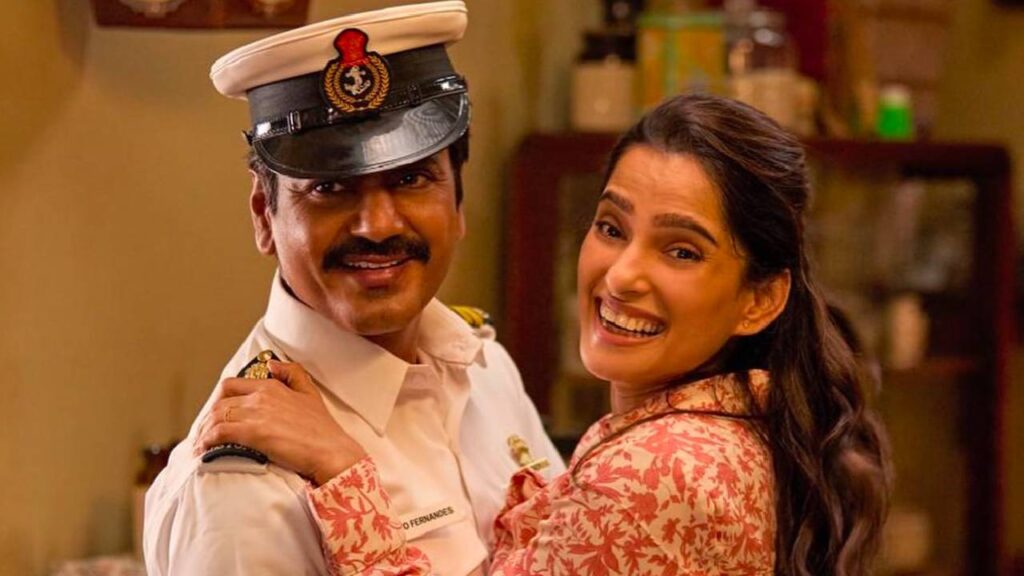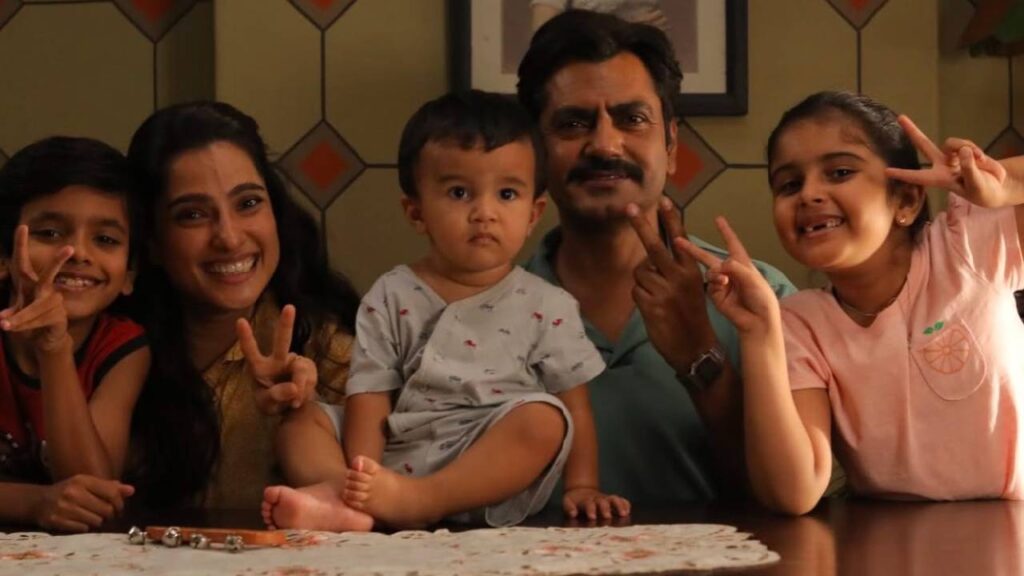In an exclusive chat with The Pioneer, acclaimed actress Priya Bapat opens up about her soul-stirring role in the newly released crime thriller Costao. Reflecting on the unseen burdens of family life, the complexity of moral gray zones and the art of staying present in the moment, she offers an intimate look into her process, her partnership with Siddiqui and why sometimes, the characters who speak the least leave the deepest mark
Tejal Sinha
tejal.sinha30@gmail.com
There are performances that shout, and then there are those that whisper—and linger. Priya Bapat, one of Indian cinema’s most quietly powerful performers, belongs to the latter. With a career built on grace, emotional precision and unflinching honesty, she has carved a space that’s entirely her own—whether it’s in award-winning Marathi films like Kaksparsh, or in the political intrigue of City of Dreams. In her latest film, Costao, a slow-burning crime thriller set in the haunting, rain-washed lanes of 1990s Goa, Bapat plays Maria—a woman who asks for little, yet carries everything. As the wife of Nawazuddin Siddiqui’s justice-obsessed Costao, Maria is not just a character; she’s the soul of the story, the quiet reckoning behind a life built on duty. In this deeply personal conversation, Priya opens up about the emotional architecture of Maria, the unexpected silences of marriage, what it means to act opposite an unpredictable genius and why the softest characters sometimes echo the loudest.
“I always feel it’s very important for us as actors, creators, and storytellers to create characters that are emotionally appealing,” Priya begins, as she describes the multilayered emotional arc of Maria. “Maria is exactly that. You relate to her honesty and you understand Kosta’s inspiration—he’s doing what’s right in his own eyes. But often, when decisions are made for the greater good, the family pays the price.”
Maria, Priya explains, represents the side of the family that’s often unheard—the emotional casualties of moral duty. “She is one girl who has only aspired for a life with Costao and their three kids. That’s it. No drama. Just a simple, normal life.But when a man like Costao is so passionate and driven by his mission—his honesty towards work and his nation—sometimes the family takes a backseat.”
Her character becomes a mirror to many in the audience, Priya believes. “Every family-oriented person, especially women—but not only women—will emotionally connect with Maria. When one partner is constantly absent and the other carries all the responsibilities, the dream of a simple family life starts to crumble. And while times are changing, traditionally it’s women who’ve borne the emotional and logistical load of the household.”
Costao is steeped in morally ambiguous decisions and Priya shares her approach to portraying a character caught in such ethical turbulence. “You become less judgmental in life when you play diverse characters. It’s not necessary to judge the character; it’s more important to see their point of view in a given situation. Two people can be right in their own way, but the situation itself may not be.”
For Priya, withholding judgment is crucial to performance. “If I start morally evaluating the character, I won’t be able to do justice to her emotional arc. Even if I were playing a gangster, I’d have to play it with honesty and authenticity. Especially in a marriage—no outsider can know what’s truly going on. Only the two people in it do.”
On working with Nawazuddin Siddiqui, known for his methodical yet unpredictable performances, Priya shares a moment that left her in awe. “There was a dinner scene at a restaurant—we had finished the lines written in the script. But he continued to emote while the camera was on me. And I had to react—spontaneously—because the director hadn’t called the cut. We kept exchanging reactions. After the take, I asked, ‘Sir, this wasn’t in the script’ and he said, ‘But that’s what the scene is about, Priya. It’s beyond what’s written.’”

That experience shifted something in her. “It taught me to stay alert, stay present, because he might stretch a moment beyond its textual limits. It was a huge learning experience for me. It kept me on my toes, and I really enjoyed that unpredictability.”
Without giving away spoilers, Priya acknowledges the emotional transformation Maria undergoes in the film. “I’m married for fourteen years. That says it all (she laughs). I’ve had arguments, disagreements and we’ve managed to stay together. Maria and Costao marriage is different, their journey is different. But I understand where Maria is coming from. At some point in life, you’ve felt those emotions—even if not to the same intensity.”
As an actor, she finds power in observation. “You don’t always have to experience everything personally. You see these dynamics in your friends’ lives and you absorb that. That’s what makes it feel real when you portray it.”
Though Maria is inspired by a real-life figure, Priya had to bring her own authenticity to the role. “I’m a Maharashtrian, not Goan. I wasn’t raised in Goa. And I don’t have children—Maria has three! So I had to work on how she talks, walks, behaves—to distinguish her from me, while still finding emotional commonality. That’s what I focused on.”
What stands out in Costao is how it breaks away from the stereotypical portrayals of women in crime thrillers. “The women in the story—mine and others—aren’t weak. They’re self-sufficient. They take their own decisions and run the family along with the men. This is not a contemporary story—we’re talking about the 1990s. For a woman at that time to be self-assured and demand what she wants is a huge deal. The makers didn’t judge them morally, and I hope the audience won’t either.”

She continues: “It’s Costao’s story, yes. But it’s important to understand how his journey and choices impact his wife and kids. And the film respects individual identities—it respects individuality. That’s something I really appreciate about the way women are portrayed.”
The setting of Goa plays a powerful role in Costao, functioning almost like a character in itself. Asked about how the location influenced her performance, Priya laughs, “That’s a question for the makers. I was just there to enjoy Goa!” She recalls traveling across different beaches, discovering lesser-known parts of South Goa. “The vibe of Goa gives you a mix—happy and fun, yet rustic. That’s also the character of the film.”
As her career continues to ascend, Priya sees Costao as a defining project. “The choices you make as an actor define your journey. Working with someone like Nawazuddin sir really positions you differently. People look at you differently when you make choices like this.”
It’s not just about screen time, she asserts. “It’s about how your character takes a stand, how you’re portrayed, and what impact you leave in the story. Not every character has to leave an impact on your personal life. But the process—the filming, the learning, the collaboration—leaves something behind. That’s what stays with me and makes me a better person, I hope.”
Costao is now streaming on Zee5 and Priya Bapat’s grounded yet stirring performance as Maria is proof that sometimes the quietest voices carry the deepest resonance.




